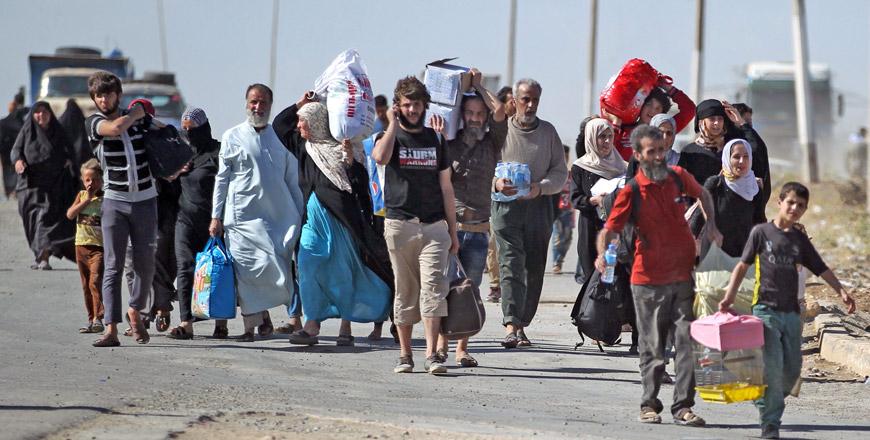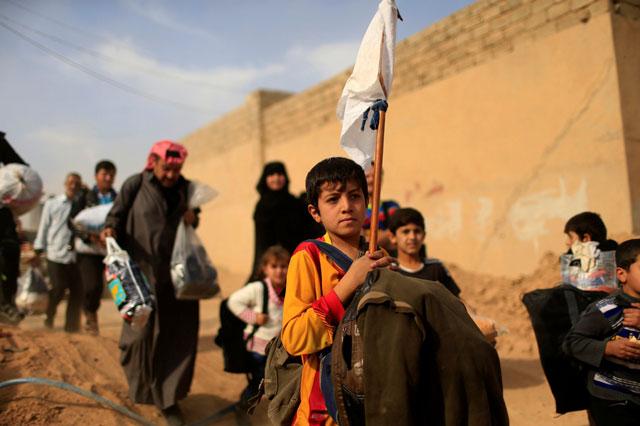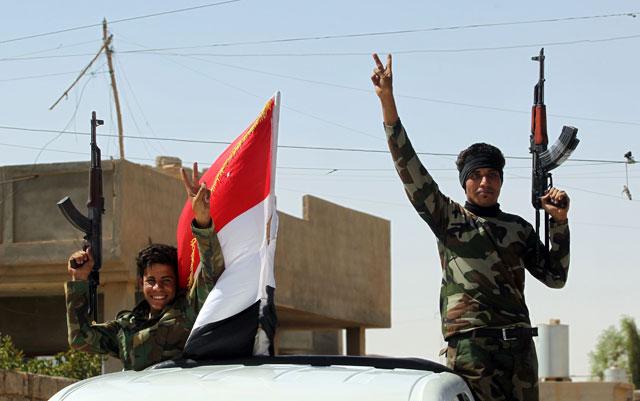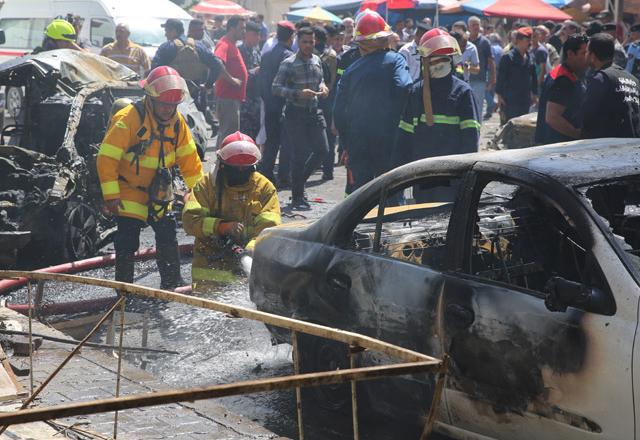You are here
Daesh-claimed suicide bombings kill 35 in Iraq
By AFP - May 20,2017 - Last updated at May 20,2017

Displaced Iraqis from western Mosul head to Hammam Al Alil camp for internally displaced people after fleeing their homes, as Iraqi forces advance in their ongoing offensive against the Daesh group, on Saturday (AFP photo)
BAGHDAD — Suicide bombings at checkpoints in Baghdad and southern Iraq claimed by the Daesh terror group killed at least 35 people and wounded dozens more, officials said on Saturday.
The bombings, which hit Iraq the previous night, came as Iraqi forces battle Daesh in Mosul in a massive operation launched more than seven months ago to retake the country's second city from the extremists.
In Baghdad, suicide car bombers attacked in the area of a checkpoint in the city's southern Abu Dsheer area, killing 24 people and wounding 20, Brigadier General Saad Maan told AFP.
Security forces were able to kill one of the attackers, but the second blew up his car bomb, Maan said.
Daesh issued a statement claiming the attack but gave a different account of how it unfolded, saying that one militant clashed with security forces using a light weapon before detonating an explosive belt, after which a second blew up a car bomb.
And in south Iraq, a suicide bomber blew up an explosives-rigged vehicle at a checkpoint on the outskirts of the city of Basra, killing 11 people and wounding 30, according to Riyadh Abdulamir, the head of Basra province health department.
Another militant who left a second explosives-rigged vehicle was killed by security forces, the Basra Operations Command said.
Daesh also claimed the Basra attack, but said that both bombs were successfully detonated.
The extremist group overran large areas north and west of Baghdad in 2014, but Iraqi forces backed by US-led air strikes have since recaptured much of the territory they lost to the extremists.
Security in Baghdad improved following the 2014 Daesh assault, presumably because the extremists were occupied with fighting and control of territory elsewhere in the country.
After recapturing the cities of Tikrit, Ramadi and Fallujah, Iraqi forces launched an operation to retake Mosul — at the time the largest population centre still in Daesh hands — last October.
They have recaptured the city's east and are now fighting to retake a dwindling number of areas still under Daesh control in west Mosul.
Half a million people are currently displaced as a result of the battle for Mosul, and around 250,000 civilians are estimated to still be trapped inside the city's west.
The presence of the civilians, who either chose not to leave or were prevented from doing so by Daesh, complicates any final assault to seal victory in Mosul.
Human shields have become a central feature of the vastly outnumbered jihadists' defences, and Daesh has stopped at nothing to deter people from escaping the city, including killing people who seek to flee.
And the recapture of the city will not mark the end of the Daesh threat: the extremists also control territory along the Syrian border and in Kirkuk province, as well as areas in Syria itself.
Experts warn that the extremists may increasingly turn to bombings targeting civilians and hit-and-run attacks on security forces as they lose additional ground.
Related Articles
BAGHDAD — Suicide bombings claimed by the Daesh terror group killed 15 people on Monday in an oasis town south of Baghdad and the city of Fa
SAMARRA, Iraq —Militants killed 12 people in a shooting and a suicide bombing on Saturday in the northern city of Tikrit, which was recaptur
BAGHDAD — Suicide bombings claimed by the Daesh terror group killed at least 27 people in Baghdad, officials said on Tuesday, as Iraqi force














